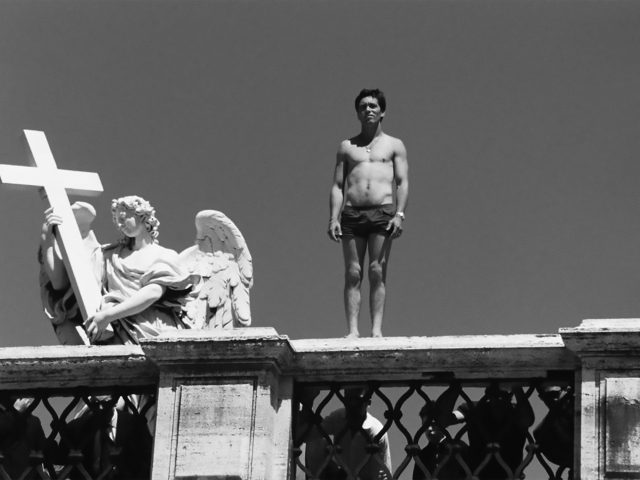
There once was a time when some of the brightest thinkers wondered if movies were the answer. Could this new visual language topple tyrants? Fix social problems? Rewrite the political landscape? There were many questions, and the answer kept coming back: cinema.
Among these post-war, mid-century philosophers, the Italian Pier Paolo Pasolini has secured a special place in the history books. A novelist and poet, the controversial filmmaker turned to the camera to get his message to a mass audience. It worked. Of the 13 features he directed in his short life, all garnered attention for being incendiary, subversive, radical — even downright despicable. Before his death at the age of 53, Pasolini captured the grit of everyday life, populations on the absolute margins of society and beatified the lowest among us.
That makes Criterion’s newest Blu-ray set, Pasolini 101, a perfect entry for cineastes. Here are nine movies — Accattone, Mamma Roma, Love Meetings, The Gospel According to Matthew, The Hawks and the Sparrows, Oedipus Rex, Teorema, Porcile and Medea — all gorgeously restored for a new generation to discover.
Pasolini was a gay Marxist atheist, and it shows in everything he touched. Take Accattone: the narrative centers on a two-bit pimp, Vittorio (Franco Citti), trying to make something more of himself, only to fall back on his base qualities when he meets the innocent Stella (Franca Pasu), falls for her and then puts her on the streets. That she accepts this turn of events without hesitation tells you everything you need to know about survival in a post-war state.
And yet, despicable as he may be, Pasolini frames Vittorio, as he does so many of his characters: with close-ups that speak toward the sacred. Pasolini may have been a gutter poet, but his gaze was always toward heaven.
That makes for quite the reversal in The Gospel According to Matthew, a telling of the Christ story stripped so bare of religiosity that it feels like you’ve been transported to Galilee. Nonactor Enrique Irazoqui plays Jesus not as a force of muscular righteousness but as a somewhat underfed man trying to carry out a mission greater than himself. And to capture it, Pasolini and cinematographer Tonino Delli Colli — who lensed seven of the nine films in this set — treat The Gospel According to Matthew like a documentary shot on the streets. It’s a period film in the most present of tenses.
And if an atheist’s take on the gospel seems odd to you, consider Teorema, with Terence Stamp playing house guest to a chaste bourgeois family in Milan. Everyone in the house is suffering, including the housekeeper, who tries to kill herself. Stamp’s unnamed guest saves her, then begins a sexual relationship with the son, then the mother, then the daughter. He connects with the father and leaves. Is he an angel? A devil? Pasolini never says — though only one in the home is truly touched by the Holy Spirit. Who that is, speaks volumes about Pasolini’s politics.
On it goes. In the documentary Love Meetings, Pasolini talks to Italians on the street about sex, orientation, gender roles and a bevy of hot topics. The Hawks and the Sparrows is a comedy starring Italy’s answer to Charlie Chaplin: Totò. In Oedipus Rex and Porcile, Pasolini blends eras to point out modern-day depravity — the latter featuring cannibalism and bestiality. For Medea, Pasolini again turns to the Greeks, but this one stars opera singer Maria Callas in her only film role. And then there’s Mamma Roma, arguably one of the best movies ever made.
Fourteen years after Pasolini debuted with Accattone, he made the infamous Salò, or the 120 Days of Sodom, a movie so incendiary and repulsive many believe it was the reason for his murder. Pasolini died at the age of 53 under mysterious circumstances, so much so that the conspiracies surrounding his killing — and who might have been behind it — have become almost as famous as the movies he made. But that’s a story for another day. Today, it’s about Pasolini, the filmmaker, artist and thinker: one of the best the 20th century saw, and one whose work should never be forgotten.
ON SCREEN: Pasolini 101 is available now on Blu-ray from The Criterion Collection.














